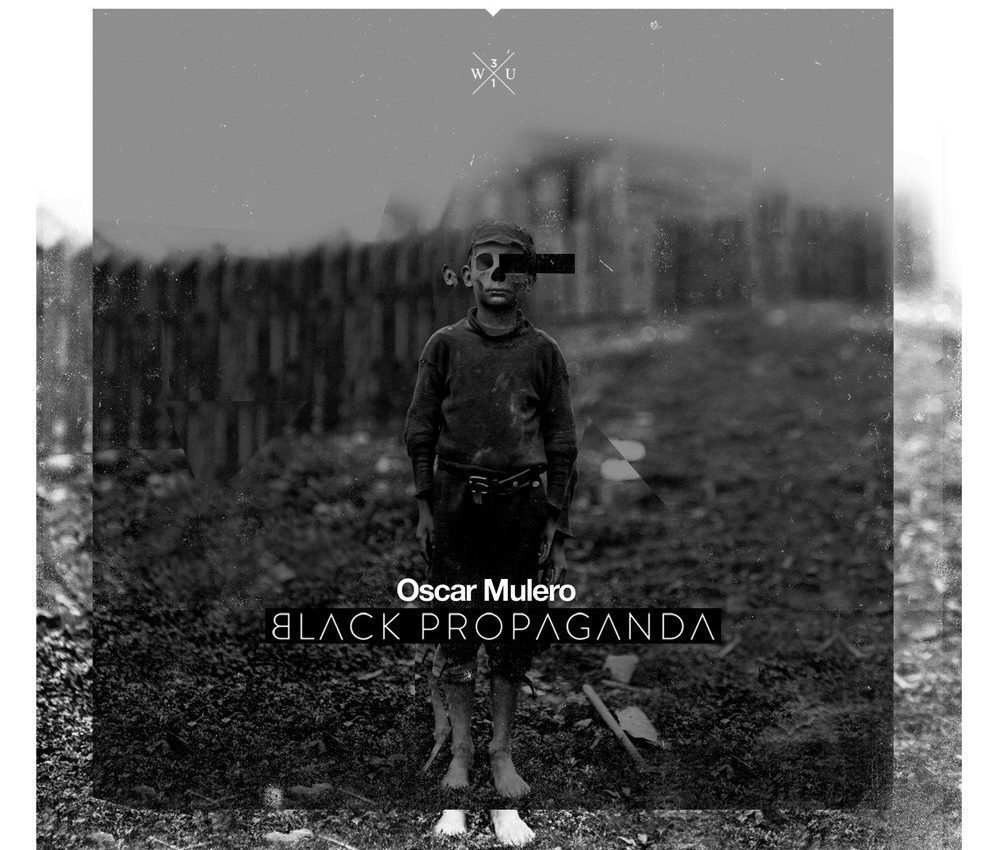With Britain in the grip of near-compulsory enthusiasm for a militarised circus of corruption on an epic scale, there can hardly be a better time to be listening to an album entitled Black Propaganda.
Although there are no explicit political statements here the overall concept, track titles and their dark atmospheres suggest a degree of politicised thought behind the work. Arguably it shows the renewed strength of serious underground techno as a corrective to the spectacular propaganda structures that mainstream techno is an unapologetic part of.
With a title like this you might expect a full-on set of harsh Spanish minimal techno in line with the material Oscar Mulero first became known for. What actually transpires is a surprisingly subtle and abstract set that takes its time to develop and mostly stays at a medium pace, evolving gradually rather than thrusting forwards.
a surprisingly subtle and abstract set
The result is different both to Mulero’s historic dancefloor material and to last year’s more ambient Grey Fades to Green album. The album is described by the label as being “like a soundtrack for a sad European landscape: mental, industrial, repetitive and definitely non-melodic.”
It’s only relatively industrial (less so than Regis or other techno producers can be) but definitely interestingly oblique and it does subtly destabilise listeners’ expectations.
It opens with The Dirt; a very ominous dark soundscape marked by tentative tones emerging from the murk. Next up is the improbably-titled Instant Widespread of the Dirt, which is actually more clean than dirty. It’s a very minimal and sometimes eerie track with dub tendencies stalked by colder high-frequency sounds, some very high up in the mix.
The combination of these sounds with a fairly cavernous mix demonstrates the precision and subtlety that mark the album.
Introducing Errors is quite different, based on a strict, almost military, beat and a heavy bassline. It creates a cold, controlled groove fleshed out with some interesting textures. Disinformation is suitably threatening, featuring icy acid stabs that gradually cede space to sinister high frequency drones.
a cold, controlled groove fleshed out with some interesting textures
To Convince for the Untruth builds on this formula but is the first track to be more clubby than atmospheric, even if in a very qualified way. It’s more danceable but at least as dark, if not darker than, its predecessors. The most impressive aspect is the way that the metallic textures ripple through the mix in an almost tangible way.
The sounds twist and mutate as they unfold before the track drops away to cold, clear atmospherics in the last half minute.
Going further into more abstract territory, Intentionally False is structured around slowly coiling acid sequences and serious sub-bass offset by bright, icy stabs and sharp whip-like sounds looming out of the bassy murk.
ultra-clean, almost-sterile, archetypal minimal techno
After this the album’s two most dynamic tracks unfold, both building on the enduring legacy of Detroit techno. Inaccurated information is an urgent, linear track in the vein of Robert Hood: ultra-clean, almost-sterile, archetypal minimal techno with real drive behind it. If the previous track was very much Robert Hood: mode, False Statements recalls the work of his old colleague Jeff Mills. The icy electronic pulses and machine textures have a trace of Mills’ X-103 era work and seem like a successful continuation of the old 1990s templates.
Then suddenly the beats have finished and we reach the beatless conclusion, Black Propaganda itself. From the start it has a strong sci-fi feel, even before a sample from a 70s sci-fi film emerges. interestingly it’s one previously used by Laibach and other industrial groups.
Hearing this makes me nostalgic for the days of sample-heavy tracks, before sampling became so expensive/risky. As a reminder of a less-regulated and more optimistic time it’s a suitable conclusion to an industrially-influenced and thought-provoking techno set.
http://www.oscarmulero.com





















